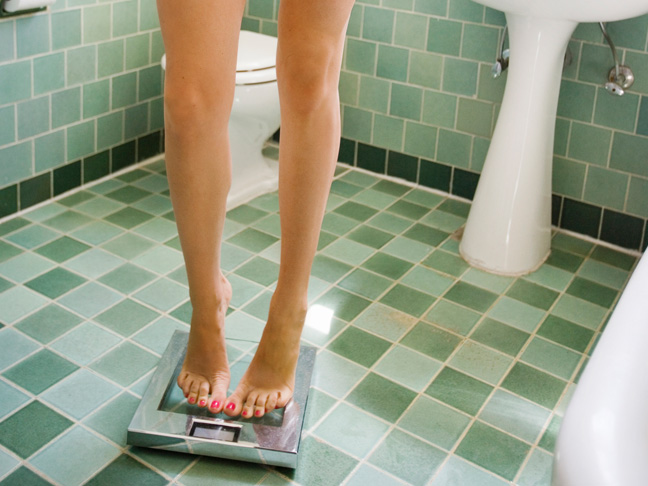My oldest son spent the summer learning parkour, which is basically a fancy way of saying he spent eight hours a day rolling around and learning how to throw his body from high places without breaking any bones. The hard exercise changed him, and not just physically — by the end of the summer, he was calmer, kinder, and more confident than ever.
Mastering his body is helping him master his mind.
I see so much of myself in him, especially now that I’m sober. I’m a recovering alcoholic and pill popper, which isn’t something I am necessarily proud of, but it’s an intrinsic part of who I am as a person and as a mother, so, rather than sweeping it under the rug and hiding it from my family, I choose to own it.
Every day, I pack my kid’s lunches, set two gummy vitamins on each of their place mats, and pour myself a cup of coffee. Every day, I kiss my husband and walk through whatever is required of me to keep this household, and the people in it, functioning smoothly.
And also, every single fu*king day, I wrestle with the demons in my head that tell me I’m not good enough.
Every addict and alcoholic has a part of their brain that whispers to them — sometimes sporadically, sometimes constantly — that the pain of existing is simply too much to bear, that they need this or that to make the discomfort go away. Their addiction begs to be listened to. When I struggle with the uncomfortable feeling of anxiety or fear, I know that a drink or two would make me feel better. But what about the inevitable next four drinks? And the five after that — what then? I’ll tell you what: misery, shame, depression, and more discomfort. I’m slowly learning in recovery that walking through the uncomfortable feelings is always the better option for a person who struggles with addiction.
In my first four months of sobriety, I packed on over 10 pounds because all I did was eat carbs and cry. I was one of those people sitting in bed at 10 p.m. eating sleeves of Lemon Oreos and sobbing. I ate more bags of Skittles and M&Ms than I care to remember. I did things like bake cookies and eat the entire batch by myself while standing in my kitchen, one right after the other.
I ate like my life depended on it, and it sort of did. Without alcohol, my feelings were just so loud. I had to do something, and usually that something involved eating icing directly from the carton. This is a totally normal and common thing that happens to women in recovery, by the way, but my therapist cautioned me that I was on the road to developing a food addiction unless I figured out a way to get ahold of myself.
You guys, I DO NOT WANT A FOOD ADDICTION.
Armed with a very real fear of ending up in Overeater’s Anonymous, I re-joined, for the umpteenth time, the My Fitness Pal app. Before I got sober, counting calories was not something I was capable of doing, but to my surprise and delight, I actually enjoyed the structure. (WHO AM I RIGHT NOW?!) Instead of skipping meals and then bingeing on junk, I began eating at regular intervals during the day (such a novelty!). My moods leveled out almost immediately, which meant that I was better equipped to deal with difficult emotions (duh!) as they popped up. It’s not rocket science, obviously, but this was a major revelation for me. I’ve never really nourished myself properly as an adult, and as it turns out, I needed to learn how.
I joined a gym and began taking exercise classes, and just like my son, I can feel my anxiety melting away with every completed push-up. As my mental and emotional health improves along with my physical health, I am slowly regaining confidence in myself as a human being. Addiction stripped me of so much. I want it back, and I’m willing to do the work.
Maybe next summer, I’ll be brave enough to try parkour.
Maybe.








